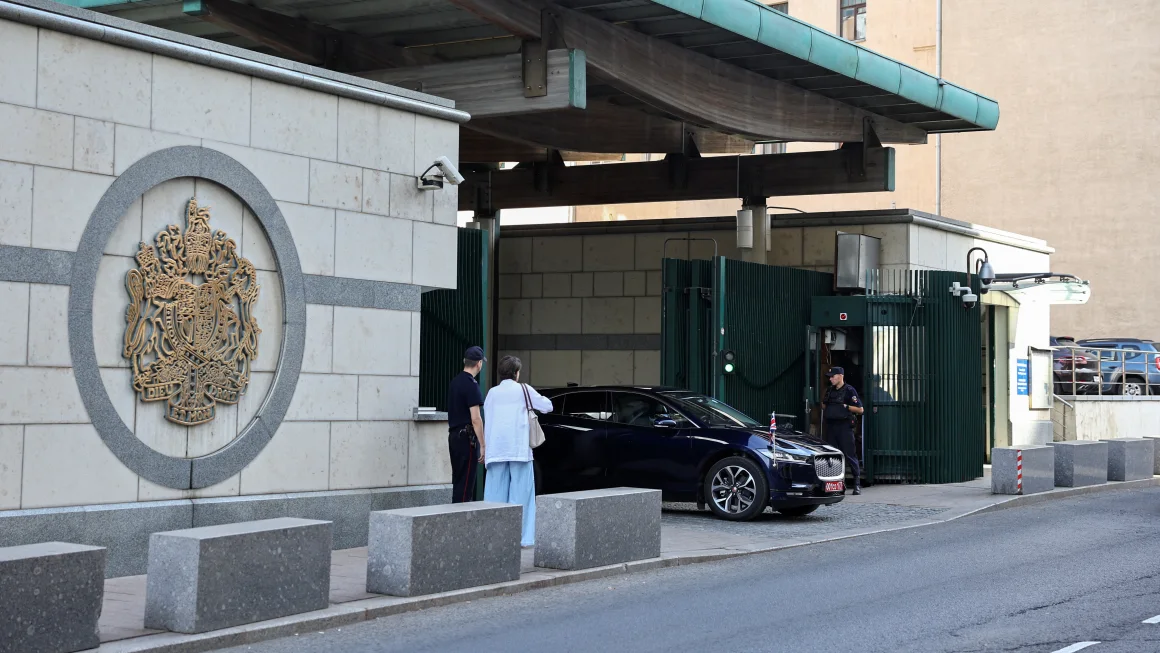In a recent geopolitical twist, Russia has expelled six British diplomats, accusing them of engaging in espionage activities, a move that coincides with ongoing discussions between Western allies about Ukraine’s potential to target Russian territory with long-range weapons. This latest escalation underscores the growing tension between Russia and Western countries as the conflict in Ukraine continues to intensify.
Accusations of Espionage: Russia’s Allegations Against British Diplomats
Moscow’s Federal Security Service (FSB) announced that it had detected “signs of intelligence and subversive work” by the expelled British diplomats. However, no concrete evidence was provided to back the claim. Russia argued that the diplomats’ actions threatened the country’s security. The Russian state media quickly revealed the diplomats’ identities, escalating the situation further.
“The accusations made today by the FSB against our staff are completely baseless,” a spokesperson for Britain’s Foreign Office responded. Britain’s government firmly rejected the allegations, emphasizing that the diplomats fulfilled their duties and left Russia weeks ago.
Diplomatic Fallout: Britain Responds to the Expulsions
According to Britain’s Foreign Office, the expulsions were in response to measures taken by the previous British administration. In May, then-Prime Minister Rishi Sunak’s government summoned the Russian ambassador and expelled the Russian defense attaché, describing him as “an undeclared military intelligence officer.”
In its statement, Britain reiterated that it was “unapologetic about protecting its national interests” and dismissed Russia’s claims as part of a broader political narrative to justify its actions.
The Timing of the Expulsions: A Political Maneuver?
The timing of the public revelation of the expulsions appears calculated. It came just as British Prime Minister Keir Starmer arrived in Washington DC to meet with US President Joe Biden, where discussions on Ukraine’s ability to strike Russian territory with Western-supplied long-range weapons were on the agenda. Ukraine’s President Volodymyr Zelensky has been lobbying for such measures, especially following Kyiv’s recent incursion into Russia’s Kursk region.
Russian President Vladimir Putin, in response to these discussions, issued a stern warning to NATO, stating, “This will mean that NATO countries – the United States and European countries – are at war with Russia.”
A Continuing Diplomatic Struggle
Britain and Russia have been engaged in a series of diplomatic retaliations since the invasion of Ukraine. Both countries have targeted diplomats, lawmakers, and journalists, from sanctions to expulsions. This latest move by Russia adds another chapter to the ongoing geopolitical struggle between the West and Russia.
The coming weeks will reveal how these diplomatic tensions will evolve, especially as discussions over Ukraine’s military capabilities continue in Washington and beyond.
A Geopolitical Showdown
As Russia and Britain continue to trade diplomatic blows, the broader implications for Ukraine and the potential use of long-range Western weapons against Russian targets remain uncertain. With both sides holding firm positions, the conflict may take a new turn that could reshape international relations for years to come.







